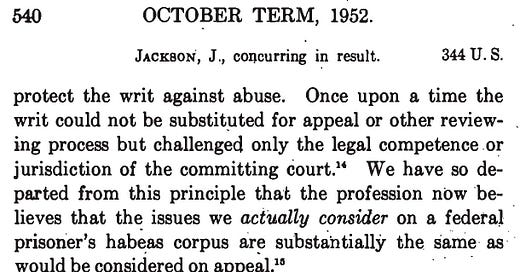Bonus 41: What Does It Mean To Be "Bound" by a Supreme Court Decision?
Today's bonus issue walks through why the answer to this question is messier (and more revealing about the Supreme Court's institutional role and authority) than it might seem at first blush
Welcome back to the weekly bonus content for “One First.” Although Monday’s regular newsletter will remain free for as long as I’m able to do this, much of Thursday’s content is behind a paywall to help incentivize those who are willing and able to support the work that goes into putting this newsletter together every week. I’m grateful to those of you who are already paid subscribers, and hope that those of you who aren’t will consider a paid subscription if your circumstances permit:
One of the central distinctions between the substance of Monday’s free issues and that of Thursday’s bonus content is the personalization of the latter. Given that fall semester classes started this week at UT, I thought I’d use today’s bonus issue for a bit of an unusual topic: What it means to be “bound” by a Supreme Court decision. It turns out that what I’ve always viewed as the answer is a bit messier than might appear at first blush (partly because of the different ways in which actors can be “bound” by a judicial decision), but also very revealing about the Court’s structural role in our system—and the extent to which that role is not necessarily compelled by the text of the Constitution.
To make a long story short(er), for reasons I elaborate upon below the fold, I think Justice Jackson had it exactly right in 1953, when he wrote about the Court that “We are not final because we are infallible, but we are infallible only because we are final.” It’s the Court’s structural finality, as much as anything else, that makes it “supreme.” And that’s why public support (or at least the absence of mass public opposition) to the Court is so central to the Court’s supremacy—and why Congress’s power to regulate that finality (by controlling at least much of the Court’s appellate jurisdiction), is, or at least could be, such an important check on the Court.
For those who are not paid subscribers, the next free installment of the newsletter will drop on Monday morning. For those who are, please read on.
Keep reading with a 7-day free trial
Subscribe to One First to keep reading this post and get 7 days of free access to the full post archives.




